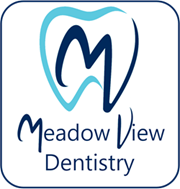Mouth breathing is a habit that can significantly impact your oral health and overall well-being. While occasional occurrences are normal, chronic cases can lead to a variety of dental and health issues. Understanding the effects of mouth breathing and learning how to correct it can help you maintain better oral hygiene and improve your quality of life.
 Effects on Oral Health
Effects on Oral Health
-
- Dry Mouth: One of the most immediate effects is dry mouth, as air passing through the mouth causes saliva to evaporate. Saliva is crucial for neutralizing acids, washing away food particles, and protecting teeth from decay. A lack of saliva can increase the risk of cavities, gum disease, and bad breath.
- Gum Inflammation: Chronic cases can lead to gum inflammation and increase the likelihood of developing gingivitis. The constant airflow can irritate the gums, causing redness, swelling, and bleeding. Without sufficient saliva to keep the gums moist and healthy, they become more susceptible to infection.
- Altered Facial Growth in Children: In children, prolonged mouth breathing can affect facial growth and development. This can lead to an elongated face, narrow palate, and misaligned teeth, which may require orthodontic treatment to correct. The improper development of facial structures can also contribute to speech difficulties and self-esteem issues.
Causes
-
- Nasal Obstruction: The most common cause is nasal obstruction, which can be due to allergies, sinus infections, a deviated septum, or enlarged tonsils and adenoids. These conditions can make it difficult to breathe through the nose, forcing individuals to breathe through their mouths.
- Habitual Mouth Breathing: Some individuals develop mouth breathing as a habit, even in the absence of nasal obstruction. This can be due to anxiety, stress, or simply a learned behavior that persists over time.
How to Correct It
-
- Address Underlying Issues: The first step in correcting mouth breathing is identifying and addressing any underlying medical issues. Consult an ENT specialist or an allergist to determine the cause of nasal obstruction and receive appropriate treatment. This may involve allergy management, medication, or surgery to remove obstructions.
- Practice Nasal Breathing Exercises: Breathing exercises can help retrain your body to breathe through the nose. Techniques such as Buteyko breathing focus on improving nasal airflow and reducing breathing through your mouth. Consistent practice can help you develop healthier breathing patterns.
- Use of Breathing Aids: In some cases, using breathing aids such as nasal strips or dilators can help open the nasal passages and facilitate easier nasal breathing, especially during sleep.
- Consult a Dentist or Orthodontist: If it has led to dental issues, consulting a dentist or orthodontist can help address any related oral health concerns. They can recommend treatments to correct misaligned teeth or jaw issues and offer advice on maintaining good oral hygiene.
Mouth breathing can have significant negative effects on your oral health, but with proper intervention, it can be corrected. By addressing underlying causes, practicing nasal breathing, and consulting healthcare professionals, you can reduce the impact of mouth breathing on your oral health and overall well-being. Taking proactive steps to correct mouth breathing can lead to improved dental health and a better quality of life. If you suspect that mouth breathing is affecting your oral health, seek advice from a healthcare provider for a comprehensive evaluation and personalized treatment plan.



